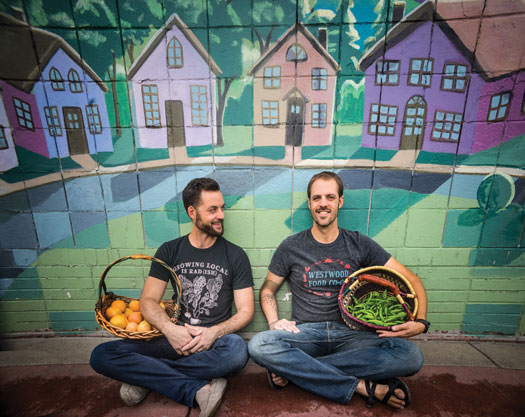
Share On Social!
Healthy food activists Erick Kornacki and Joseph Teipel have a phrase to call the 81% Latino neighborhood of Westwood in Denver.

A “food desert.”
For decades, Westwood residents have struggled to access healthy food. There are no nearby grocery stores or farmers markets. People lack transportation to find healthy options elsewhere to bring back.
Kornacki, Teipel, and Westwood neighbors decided to take matters into their own hands.
They began to build backyard vegetable gardens. They talked about how to create a food cooperative. They wanted to build the first community-owned and -run grocer as an oasis in this food desert.
Food Deserts Isolate Latinos from Healthy Food
In 2007, Kornacki and Teipel co-founded Re:Vision, a nonprofit that works on social justice and food systems for all.
They want to improve healthy food access in food deserts.
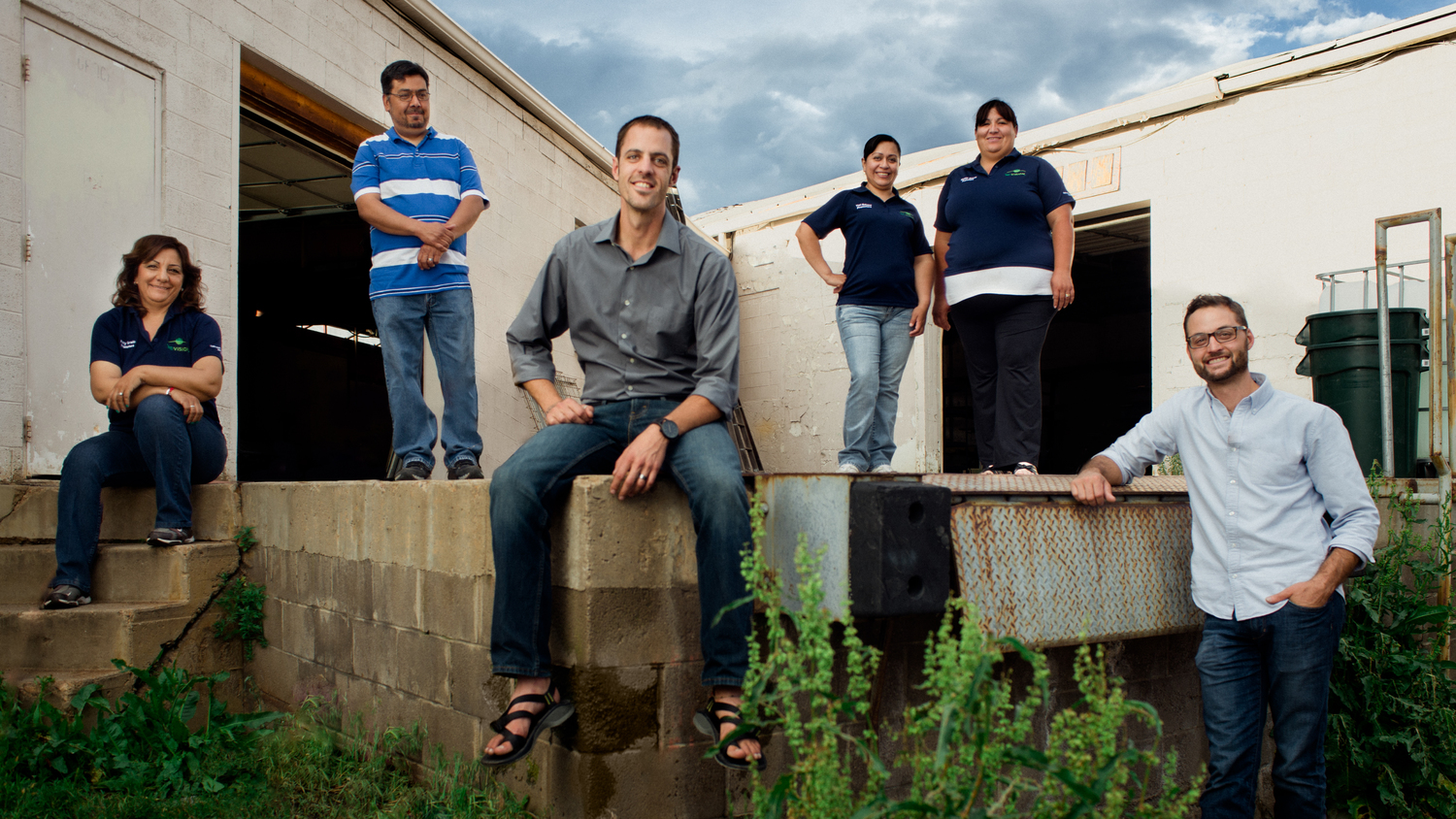
A food desert is a geographic area that is more than a mile or two from the closest grocery store in an urban area, or more than 15 minutes from the closest grocer in a rural area.
Distance makes it difficult for Latino families to access healthy food, especially for many families that may not have adequate transportation. This leaves many people to pick up sugary snacks at the corner store, outlets that may not accept food vouchers and tend to offer lower quality, more expensive items.
29% of U.S. Latinos live in food deserts.
“Over 23 ½ million American families live in a food desert,” explained Kornacki, in a video by Slow Money.
Why Westwood?
The average family income in Westwood is just over $11,000. One-third of people are younger than 18.
Two of every three adults here deal with obesity and diet-related illnesses. This makes sense, considering research by the Food Trust shows that adults with no supermarkets within a mile of their homes are up to 46% less likely to have a healthy diet than those with the most supermarkets near their homes.
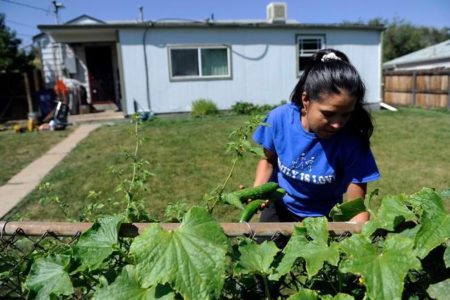
“The Westwood community, for decades was forgotten by surrounding neighborhoods and the rest of the city,” Kornacki explained in a video.
They are not alone however, as Salud America’s Better Food in the Neighborhood study shows that Latino neighborhoods have one-third the number of supermarkets as non-Latino neighborhoods.
Using Backyard Gardens and Promotoras To Boost Westwood Health
Kornacki and Teipel, through Re:Vision, sought ways to empower Westwood residents to take control and improve local food access.
They helped more than 400 people start backyard gardens.
They recruited promotoras—Latino outreach workers trained in health, nutrition, and gardening—to give gardening tips. Promotoras also helped backyard gardeners come together for cooking classes and community service.
Now people grow their own organic fruits and veggies for their family and friends.
Gardens can reduce stress and improve emotional health, according to Salud America!’s Latino Families Research Review. Gardens also help people be more physically active. Gardens also help people eat 46% more fruits and vegetables than non-gardeners, according to a study by University of Colorado.
This promotora model is the foundation of Re:Vision’s success. It helps create self-sufficient community food systems through resident empowerment. Community-based interventions have shown promise in improving mental health for Latino populations, according to Salud America!’s research on Mental Health.
A New Idea: A Neighborhood-Owned Grocery Store
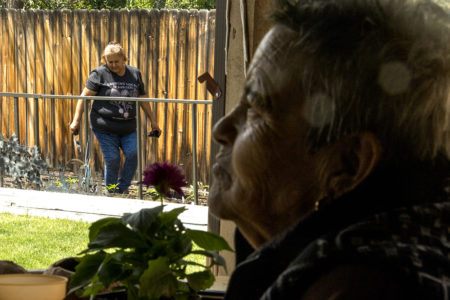
Kornacki and Teipel believed they could do more to increase fresh food access and minimize economic disparities in the neighborhood.
“It became clear that we needed something bigger than just a garden,” Kornacki explained to YourHUB Denver.
Westwood needed a supermarket of its own.
So Kornacki and Teipel started with a feasibility study. They found that the Westwood residents spend $16 million on food each year, mostly at inexpensive corporate supermarkets outside of the neighborhood or in corner markets in the neighborhood that sell staples at high mark-ups.
Kornacki and Teipel wanted to open a grocery store—also called a “food co-op”—in Westwood that increases access to healthy food that is culturally relevant and that is owned and controlled by the community.
“What’s unique about the food co-op idea is that it’s built to fit the community’s needs,” Kornacki said.
It’s more than just building a local grocery store, and you’re done.
They formed the Westwood Food Cooperative (WFC) and devised three strategies for long-term success:
- Establish a community food system.
- Empower residents.
- Develop the economy.
“If the community can own its own solution, provides its own services, it increases its own resiliency and its own capacity to provide for itself,” Teipel said.
Starting the El Mercadito Food Market
Kornacki, Teipel, Re:Vision and the community of Westwood continue to work together toward building and opening a large, full-service grocery store in 2019 or 2020.
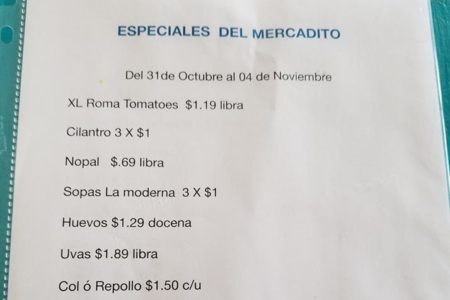
The store will be surrounded by facilities that synergize other health and civic work going on in the neighborhood. The La Casita Fitness and Learning Center by Westwood Unidos, an urban farm, open-air fiesta plaza, and a large greenhouse will all have a space. There will even be a micro-ranch for cultivating insects as a healthy food alternative.
“It will be surrounded by a network of partners, community members, and organizations who together are all catalyzing local growth in Westwood to build an economy owned by its residents, food systems transformed by its neighbors, and health revitalized by its families,” Teipel said.
Families can buy an annual store membership for $40 or a lifetime membership for $200.
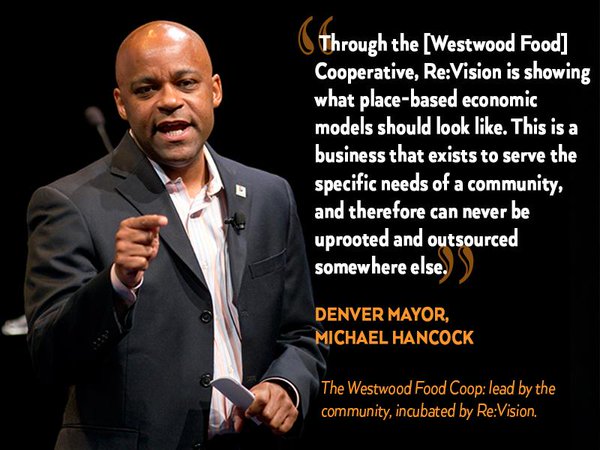
Membership recruitment is currently at 290 paid member-owners. The co-op needs more than 1,200 members to open full time.
In the meantime, they launched a smaller version of the food co-op, called El Mercadito.
El Mercadito sells fresh, local foods to neighbors with prices marked as a suggested donation. Re:Vision accepts SNAP at El Mercadito, and through a partnership with LiveWell Colorado called Double-Up Food Bucks, all SNAP purchases are matched 2-to-1!
As of fall 2017, El Mercadito is undergoing a doubling in size and expansion of hours of operation to better serve the community.
“This store will be successful because we are all a small part of it. We’re going to prove that a model like this is possible.”
Can your neighborhood start a fresh food co-op? Follow the progress of the Westwood Food Co-Op on Facebook for tips!
Credit: Salud America! digital content curator interns Amber Trevino and Jordan McIlveen co-authored this story. Lisa Ellis, a former Salud America! digital content curator, also contributed to this story.
By The Numbers
25.1
percent
of Latinos remain without health insurance coverage
This success story was produced by Salud America! with support from the Robert Wood Johnson Foundation.
The stories are intended for educational and informative purposes. References to specific policymakers, individuals, schools, policies, or companies have been included solely to advance these purposes and do not constitute an endorsement, sponsorship, or recommendation. Stories are based on and told by real community members and are the opinions and views of the individuals whose stories are told. Organization and activities described were not supported by Salud America! or the Robert Wood Johnson Foundation and do not necessarily represent the views of Salud America! or the Robert Wood Johnson Foundation.



